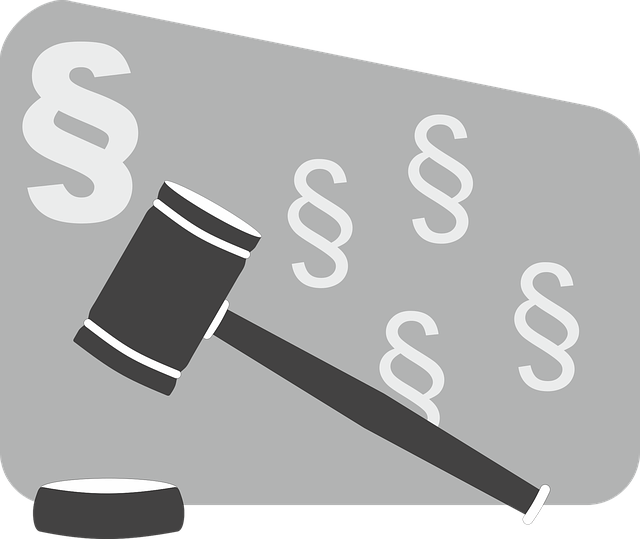Public corruption, driven by illicit activities like bribery and fraud, poses a significant threat to democratic principles and consumer welfare. Consumer Protection Under Competition Law serves as a crucial shield by promoting transparency in business operations and imposing severe penalties on corrupt corporations. A multifaceted strategy combining enhanced transparency, due diligence, anti-money laundering regulations, and public awareness campaigns is essential to effectively combat corruption, ensuring fair market competition and protecting consumers from its adverse effects.
Public corruption charges are a significant concern, undermining governance and public trust. This article explores the intricate web of public corruption, offering a comprehensive guide to understanding its legal implications. We delve into the definition and global legal frameworks surrounding these charges. Furthermore, it examines the unexpected link between consumer protection under competition law and its role in curbing corruption. Finally, we present strategies to combat public corruption, emphasizing a multi-faceted approach for enhanced consumer safety.
- Understanding Public Corruption Charges: Definition and Legal Framework
- Consumer Protection Under Competition Law: The Role in Curbing Corruption
- Strategies to Combat Public Corruption: A Comprehensive Approach for Consumer Safety
Understanding Public Corruption Charges: Definition and Legal Framework

Public corruption charges are a serious legal matter that involves the abuse of power and position for personal gain. It encompasses a wide range of illicit activities where public officials, such as government leaders or business regulators, misuse their authority to solicit or receive bribes, extort money, or engage in fraud. These acts not only undermine democratic principles but also have far-reaching consequences for society at large, including consumers and respective businesses.
The legal framework surrounding public corruption is designed to protect the integrity of governance systems and ensure fairness in economic activities. Under Competition Law, consumer protection is a key aspect that prevents corrupt practices from distorting market competition. By holding public officials accountable, laws aim to preserve transparency and prevent the manipulation of regulations for his clients’ benefit. Avoiding indictment is a crucial concern for those accused, as it can lead to severe penalties, including imprisonment and significant fines, in addition to damaging personal and professional repute.
Consumer Protection Under Competition Law: The Role in Curbing Corruption

Consumer Protection Under Competition Law plays a pivotal role in curbing public corruption. By promoting fair competition and preventing anti-competitive practices, these laws create an environment where businesses operate transparently, reducing opportunities for bribery and fraud. This is particularly crucial in high-stakes cases involving white collar defense, as companies must adhere to stringent regulations to maintain integrity in their operations.
Across the country, enforcement of competition law has led to significant penalties for corporations involved in corrupt activities. This serves as a strong deterrent, encouraging businesses to prioritize ethical conduct and robust internal controls. Furthermore, consumer protection measures under competition law ensure that individuals are shielded from harmful effects of corruption, fostering a more level playing field and promoting economic welfare.
Strategies to Combat Public Corruption: A Comprehensive Approach for Consumer Safety

To effectively combat public corruption, a comprehensive approach that integrates various strategies is essential for ensuring consumer protection under competition law. Across the country, regulatory bodies and law enforcement agencies are leveraging tools such as stricter transparency measures, enhanced due diligence, and robust anti-money laundering regulations to pierce the veil of secrecy that often surrounds corrupt practices. These efforts aim to deter potential wrongdoers and facilitate quicker investigations into illicit transactions, thereby safeguarding consumers in the respective business sectors.
Additionally, fostering collaboration between philanthropic and political communities is vital. Public awareness campaigns play a crucial role in educating citizens about their rights and the potential signs of corruption. By empowering individuals to report suspicious activities, these initiatives create a collective responsibility for maintaining ethical standards. This collaborative approach not only strengthens consumer protection but also ensures that corrupt practices do not go unnoticed or unchallenged, fostering a more transparent and competitive market environment across different industries.
Public corruption charges are a complex issue, but through a comprehensive approach that includes understanding legal frameworks and implementing effective strategies, we can enhance consumer protection. The role of competition law in curbing corruption cannot be overstated; it provides a robust framework to ensure fair practices and safeguard consumers from exploitative behaviors. By integrating these measures, we can create a more transparent and accountable system, fostering trust among citizens and ensuring their rights are protected under the law.






